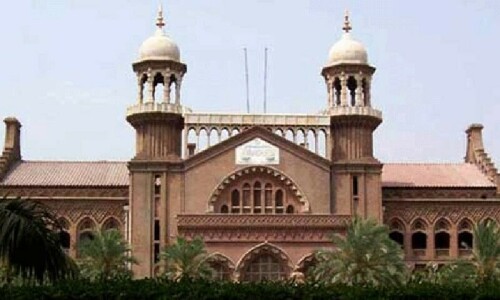ISLAMABAD: Adviser to the Prime Minister on Finance Miftah Ismail has said that the decision to put Pakistan on ‘grey list’ by the Financial Action Task Force (FATF) would only cause “embarrassment” for the country at the international level but it would have no effect on the country’s economy.
Giving a policy statement on the issue during his first appearance in the National Assembly on Thursday, the adviser alleged that the FATF had taken the decision in violation of its own rules and procedures after succumbing to pressure from the United States.
Mr Ismail had been invited by Speaker Ayaz Sadiq to give a policy statement on the issue after it was raised by opposition members, including Dr Shireen Mazari of the Pakistan Tehreek-i-Insaf, during the previous sitting of the assembly.
Confirming that Pakistan would be put on ‘grey list’ in June, the adviser ruled out the possibility that the country could be placed on the ‘black list’ in the next stage.
Decision to place Pakistan on terror financing watchlist politically motivated, says adviser
He blamed US-India nexus for being behind the move to place Pakistan on the ‘grey list’ only “to create embarrassment for the country and to damage its reputation”.
When Pakistan will be put on the ‘grey list’, its financial system will be designated as posing a risk to the international financial system because of “strategic deficiencies” in its ability to prevent terror financing and money laundering.
Giving a historical background, Mr Ismail said Pakistan had remained on the FATF ‘black list’ during 2008-10 and again on the ‘grey list’ during 2012-15. He said Pakistan was required to send an annual report to the FATF on the steps it was taking to check terror financing in the country. He said Pakistan had sent its report this year on Jan 5 and it was still being evaluated when the US initiated the move to put pressure on Pakistan.
He said the government had already sent another report to the FATF on Feb 12 informing the international body about the latest steps taken by the government, including promulgation of an ordinance by President Mamnoon Hussain to amend the Anti-Terrorism Act to list groups sanctioned by the UN Security Council as terrorist organisations. After promulgation of the ordinance, the Punjab government has taken control of several institutions being run by banned outfits.
The adviser said Pakistan was “technically compliant” to all FATF conditions and the move to place the country on the terror financing watch list was politically motivated.
He said the government would provide an action plan to the FATF in the current month to plug deficiencies identified by the watchdog, which would be put up for approval by consensus in the June session. And then, he said, implementation of the plan would be monitored by the international organisation. He expressed the hope that Pakistan would come out of the ‘grey list’ in about six months to one year.
He said the country had already spent three years on the ‘grey list’, without having any effect on its ability to float international bonds, borrow from multilateral bodies, receive or send remittances or conduct international trade.
Earlier raising the issue, PTI’s Dr Shireen Mazari called for withdrawal of visa-on-arrival for the citizens of those countries who had supported the US-backed move to place Pakistan on the terror financing watch list.
Mr Ismail opposed the idea, saying already tourists and businessmen were not coming to the country in large number and the government should not take such a drastic step as it could further create problems for the country.
Dr Azra Fazal of the Pakistan People’s Party (PPP) also opposed the idea of the visa ban. The PPP’s Syed Naveed Qamar alleged that the government had not yet changed its narrative on terrorism and was still pursuing the policy of “good and bad Taliban.”
WALKOUT: Later the PPP members staged a walkout from the assembly to protest over non-implementation of the 1991 Water Accord causing water shortage in Sindh.
The issue was raised by Nawab Yousuf Talpur, who threatened to take up the matter to the Supreme Court.
Published in Dawn, March 2nd, 2018














































